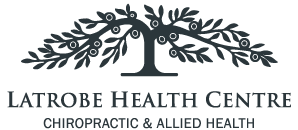With spring the garden beckons, but before pulling on your boots, consider some tips for pain free gardening.
Certainly, gardening itself has the benefits of easing stress and providing a form of exercise. Once completed a spring clean in the garden can provide a sense of accomplishment. However, remaining injury free will make for a positive experience and keep you actively developing your green thumb.
Lugging bags of fertiliser and mulch, pulling out old plants and weeds, turning soil for planting vegetables, pruning bushes or trees and digging holes to plant your recent purchases to the garden can take it’s toll on your muscles and joints – so we’ve put together some simple tips to help your body manage the strain of gardening.
Not too many gardeners would disagree that keeping the weeds at bay is one of the most labour-intensive and never-ending tasks when it comes to tending a garden. As soon as you clear the weeds from one area, another batch pops up somewhere else. Luckily, there are great tools on the market to help with this task. Consider using weed mats covered in mulch in early spring to save yourself some work down the road.
Helpful tools
There are plenty of ergonomic garden gadgets that are designed to help you work more efficiently and protect your musculoskeletal health. For example, long-handled tools help reduce bending and reaching, and self-coiling hoses are lighter and easier to move around than traditional hoses.
Garden tote
There are many practical garden totes on the market to carry your tools around with you. Keeping your trowel, seeds and other tools within arm’s reach will help you avoid twisting and reaching which can put unnecessary strain on your back and potentially cause injury.
Bring the plants to you
You probably know that bending and reaching can flare up musculoskeletal issues and potentially increase pain for arthritis sufferers, but you may think it’s unavoidable when it comes to gardening. That is not necessarily true! Consider installing raised beds to reduce bending, or even try hanging or potted plants set on a shelf within easy reach.
Low maintenance
Books about gardening often contain gorgeous pictures of sweeping properties, but remember that there is very likely a whole team of people maintaining these large spaces. If you’ve experienced back pain or increased arthritis pain from indulging in your favourite hobby, you might consider introducing low maintenance options for your garden or landscape needs. Scale back to a smaller garden, plant perennials instead of annuals, and set manageable goals.
Be kind to your body
Whether you’re weeding, planting seedlings or transplanting larger perennials, bending and kneeling can be awkward. In fact, you could hurt yourself if you stay in the same position for too long. Rather than kneeling on both knees or crouching down, use a kneeling pad and garden with one knee raised to reduce the strain on your lower back.
Take your time
Overall you should limit yourself to 30 to 45 minutes of work when you first start back in the garden. This can be built up over time as your body is conditioned. If you do find yourself sore when planning to go back for another gardening session, you can still keep things moving. Spend this recovery time planning your garden by shopping or looking online for what to plant or fixtures such as water features or outdoor furniture for the relaxing afternoons that lie ahead.
Ask for help
It’s important to know your own limits. If you need a heavy potted plant moved, don’t try to do it yourself. Always ask for help with bigger jobs like moving bags of mulch or transporting nursery plants from the car to the garden. Being aware of your limits will help to ensure that you can enjoy your hobby for the whole season.
Avid gardeners are generally passionate about their hobby, and with reason – the results can be magnificent! Simply be cautious to monitor your pace and practice a little self-care. If you do get injured or have a niggle that’s just not settling down, seek assessment and treatment as soon as possible. Happy gardening!
Adapted from Canadian Chiropractic Association.
About our Chiropractors
Our experienced chiropractors have a broad range of skills and techniques that can assist you to recover from injury and improve your health. Kyle, Rebecca and Phoebe are experienced,,caring chiropractors, all of whom have additional qualifications to their chiropractic degrees making them uniquely positioned to provide holistic, evidence based chiropractic care. Find out more about them here.







